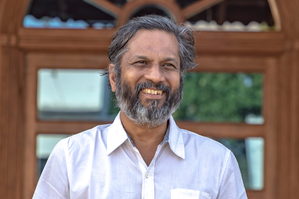window._wpemojiSettings = {"baseUrl":"https:\/\/s.w.org\/images\/core\/emoji\/15.0.3\/72x72\/","ext":".png","svgUrl":"https:\/\/s.w.org\/images\/core\/emoji\/15.0.3\/svg\/","svgExt":".svg","source":{"concatemoji":"https:\/\/www.uniquenewsonline.com\/wp-includes\/js\/wp-emoji-release.min.js?ver=6.5.2"}};
/*! This file is auto-generated */
!function(i,n){var o,s,e;function c(e){try{var t={supportTests:e,timestamp:(new Date).valueOf()};sessionStorage.setItem(o,JSON.stringify(t))}catch(e){}}function p(e,t,n){e.clearRect(0,0,e.canvas.width,e.canvas.height),e.fillText(t,0,0);var t=new Uint32Array(e.getImageData(0,0,e.canvas.width,e.canvas.height).data),r=(e.clearRect(0,0,e.canvas.width,e.canvas.height),e.fillText(n,0,0),new Uint32Array(e.getImageData(0,0,e.canvas.width,e.canvas.height).data));return t.every(function(e,t){return e===r[t]})}function u(e,t,n){switch(t){case"flag":return n(e,"\ud83c\udff3\ufe0f\u200d\u26a7\ufe0f","\ud83c\udff3\ufe0f\u200b\u26a7\ufe0f")?!1:!n(e,"\ud83c\uddfa\ud83c\uddf3","\ud83c\uddfa\u200b\ud83c\uddf3")&&!n(e,"\ud83c\udff4\udb40\udc67\udb40\udc62\udb40\udc65\udb40\udc6e\udb40\udc67\udb40\udc7f","\ud83c\udff4\u200b\udb40\udc67\u200b\udb40\udc62\u200b\udb40\udc65\u200b\udb40\udc6e\u200b\udb40\udc67\u200b\udb40\udc7f");case"emoji":return!n(e,"\ud83d\udc26\u200d\u2b1b","\ud83d\udc26\u200b\u2b1b")}return!1}function f(e,t,n){var r="undefined"!=typeof WorkerGlobalScope&&self instanceof WorkerGlobalScope?new OffscreenCanvas(300,150):i.createElement("canvas"),a=r.getContext("2d",{willReadFrequently:!0}),o=(a.textBaseline="top",a.font="600 32px Arial",{});return e.forEach(function(e){o[e]=t(a,e,n)}),o}function t(e){var t=i.createElement("script");t.src=e,t.defer=!0,i.head.appendChild(t)}"undefined"!=typeof Promise&&(o="wpEmojiSettingsSupports",s=["flag","emoji"],n.supports={everything:!0,everythingExceptFlag:!0},e=new Promise(function(e){i.addEventListener("DOMContentLoaded",e,{once:!0})}),new Promise(function(t){var n=function(){try{var e=JSON.parse(sessionStorage.getItem(o));if("object"==typeof e&&"number"==typeof e.timestamp&&(new Date).valueOf()<e.timestamp+604800&&"object"==typeof e.supportTests)return e.supportTests}catch(e){}return null}();if(!n){if("undefined"!=typeof Worker&&"undefined"!=typeof OffscreenCanvas&&"undefined"!=typeof URL&&URL.createObjectURL&&"undefined"!=typeof Blob)try{var e="postMessage("+f.toString()+"("+[JSON.stringify(s),u.toString(),p.toString()].join(",")+"));",r=new Blob([e],{type:"text/javascript"}),a=new Worker(URL.createObjectURL(r),{name:"wpTestEmojiSupports"});return void(a.onmessage=function(e){c(n=e.data),a.terminate(),t(n)})}catch(e){}c(n=f(s,u,p))}t(n)}).then(function(e){for(var t in e)n.supports[t]=e[t],n.supports.everything=n.supports.everything&&n.supports[t],"flag"!==t&&(n.supports.everythingExceptFlag=n.supports.everythingExceptFlag&&n.supports[t]);n.supports.everythingExceptFlag=n.supports.everythingExceptFlag&&!n.supports.flag,n.DOMReady=!1,n.readyCallback=function(){n.DOMReady=!0}}).then(function(){return e}).then(function(){var e;n.supports.everything||(n.readyCallback(),(e=n.source||{}).concatemoji?t(e.concatemoji):e.wpemoji&&e.twemoji&&(t(e.twemoji),t(e.wpemoji)))}))}((window,document),window._wpemojiSettings);
https://www.uniquenewsonline.com/wp-includes/js/jquery/jquery.min.js
https://www.uniquenewsonline.com/wp-includes/js/jquery/jquery-migrate.min.js
var pbLocalizeObj = {"ajax":"https:\/\/www.uniquenewsonline.com\/wp-admin\/admin-ajax.php","seconds":"seconds","thisWillClose":"This will close in","icons":{"close_icon":"<svg class=\"ays_pb_material_close_icon\" xmlns=\"https:\/\/www.w3.org\/2000\/svg\" height=\"36px\" viewBox=\"0 0 24 24\" width=\"36px\" fill=\"#000000\" alt=\"Pop-up Close\"><path d=\"M0 0h24v24H0z\" fill=\"none\"\/><path d=\"M19 6.41L17.59 5 12 10.59 6.41 5 5 6.41 10.59 12 5 17.59 6.41 19 12 13.41 17.59 19 19 17.59 13.41 12z\"\/><\/svg>","close_circle_icon":"<svg class=\"ays_pb_material_close_circle_icon\" xmlns=\"https:\/\/www.w3.org\/2000\/svg\" height=\"24\" viewBox=\"0 0 24 24\" width=\"36\" alt=\"Pop-up Close\"><path d=\"M0 0h24v24H0z\" fill=\"none\"\/><path d=\"M12 2C6.47 2 2 6.47 2 12s4.47 10 10 10 10-4.47 10-10S17.53 2 12 2zm5 13.59L15.59 17 12 13.41 8.41 17 7 15.59 10.59 12 7 8.41 8.41 7 12 10.59 15.59 7 17 8.41 13.41 12 17 15.59z\"\/><\/svg>","volume_up_icon":"<svg class=\"ays_pb_fa_volume\" xmlns=\"https:\/\/www.w3.org\/2000\/svg\" height=\"24\" viewBox=\"0 0 24 24\" width=\"36\"><path d=\"M0 0h24v24H0z\" fill=\"none\"\/><path d=\"M3 9v6h4l5 5V4L7 9H3zm13.5 3c0-1.77-1.02-3.29-2.5-4.03v8.05c1.48-.73 2.5-2.25 2.5-4.02zM14 3.23v2.06c2.89.86 5 3.54 5 6.71s-2.11 5.85-5 6.71v2.06c4.01-.91 7-4.49 7-8.77s-2.99-7.86-7-8.77z\"\/><\/svg>","volume_mute_icon":"<svg xmlns=\"https:\/\/www.w3.org\/2000\/svg\" height=\"24\" viewBox=\"0 0 24 24\" width=\"24\"><path d=\"M0 0h24v24H0z\" fill=\"none\"\/><path d=\"M7 9v6h4l5 5V4l-5 5H7z\"\/><\/svg>"}};
https://www.uniquenewsonline.com/wp-content/plugins/ays-popup-box/public/js/ays-pb-public.js
var breeze_prefetch = {"local_url":"https:\/\/www.uniquenewsonline.com","ignore_remote_prefetch":"1","ignore_list":["\/wp-admin\/"]};
https://www.uniquenewsonline.com/wp-content/plugins/breeze/assets/js/js-front-end/breeze-prefetch-links.min.js
Unique News Online
Betaal on Netflix Shambles Along Like a Zombie
Betaal on Netflix Shambles Along Like a Zombie Published
4 years ago on
May 24, 2020 Betaal — the four-part Netflix original that has Shah Rukh Khan as an uncredited producer — has been marketed as the first Indian series with zombies. Except they aren’t exactly zombies. Sure, they love to bite and turn humans to their cause. But they don’t pursue their prey rabidly. Instead, Betaal’s undead operate at the behest of their leader, who can command them and speak through them. After resurrection, the infected remember who they were and talk lucidly. Betaal adds an Indian touch to this as well, with the undead unable to walk past a combination of turmeric, salt, and ash.
Those are welcome updates in the overdone zombie genre. Unfortunately, Betaal doesn’t carry that spirit over to the rest of the Netflix series. The writing duo of Patrick Graham (Ghoul) — who has created, co-directed, and a cameo on Betaal — and Suhani Kanwar (Leila ) deliver a three-hour horror series that operates in clichés and tropes, which makes Betaal feel like it belongs to the classical stage. Graham and the team have talked about introducing Indians to zombies, but frankly, in 2021, there’s little need for that. Even those with a passing knowledge of horror know how zombies work. But Betaal has zero self-awareness, be it with its plot or characters.
For what it’s worth, there’s some attempt at socio-political commentary. In Betaal, tribal villagers are forcefully rehabilitated to make way for a highway, all in the name of “development”. They are labelled as Naxal, while the politician-builder nexus pays off counter-insurgents to remove them and clear a tunnel. That is where the counter-insurgents encounter an undead East Indian Company regiment.
Through all of it, Betaal touches upon the indifference of the political and middle class, the unquestioning, blind loyalty of the soldiers, and the greed of the former colonialists. What Betaal wants to say is that these are the real zombies, who are feasting on the flesh and blood of the underprivileged, but the message is buried, muddled, and superficial.
Betaal opens with a tribal ritual ceremony on the outskirts of the Nilja village in the heart of India, as they pray to a Lord Betaal. An elderly woman seemingly communicates with the idol and has troubling visions, before collapsing to the floor and exclaiming: “Don’t open the tunnel.” Cut to workers preparing to clear a tunnel under the Betaal Mountain, under the supervision of Ajit Mudhalvan (Jitendra Joshi, from Sacred Games). His wife and daughter Saanvi (Syna Anand, from Mere Pyare Prime Minister) have been forced to tag along for a press photo-op. But as the villagers begin to protest, and with a deadline hanging over his head, Ajit calls in a military favour.
That brings in Commandant Tyagi (Suchitra Pillai, from Karkash), the Baaz squad chief of the CIPD (Counter Insurgency Police Department), who asks those unhappy with their work to “go to Pakistan” during her TV appearances. Gladly working for Tyagi is her second-in-command Vikram Sirohi (Viineet Kumar, from Mukkabaaz), who seems to have slightly better morals. At the same time, Sirohi is obsessed with being “a good soldier”, which means he does as he’s told. That — staying true to oneself and obeying others — is an impossible balance, and why Sirohi has PTSD from an earlier mission, having seemingly killed a young girl who was a witness to a massacre.
Things take a troubling turn after the Baaz squad arrives in Nilja village. The villagers with sticks are no match for the CIPD that’s armed to the teeth, who raze and burn the village to the ground in the aftermath. But as the tunnel clear-up resumes and workers head in, things take an eerie turn — as they must, for the sake of the narrative. Further investigation by the CIPD reveals a platoon of undead dressed in British India-era attire with glowing eyes. Upon the advice of captured local Puniya (Manjiri Pupala, from Party), Sirohi the rest head to a nearby abandoned British barracks for safety. They are followed by the undead, who can shoot — the bullets also infect — and play drums.
Manjiri Pupala in BetaalPhoto Credit: Hitesh Mulani/Netflix
There’s plenty of material here that lends itself to black comedy, but Betaal is too self-sincere to recognise any of that. The closest it comes to delivering humour is over an hour in, when a CIPD sniper curses the British for stealing India’s evil spirits — which is said to be behind their power — having already stolen everything from the land to resources in the colonial past.
Betaal also throws in jabs about “hard Brexit” (ill-fitting) or Jallianwala Bagh (pop patriotism), but the common problem is that it’s all on the surface. There’s no depth to any of it. To make matters worse, the Netflix series is more successful at being unintentionally humorous.
After the CIPD holes up in the British barracks, one of them notices that the chief Tyagi’s hair has suddenly turned greyish white. The squad medic says “shock” might be behind it, and everyone else casually accepts that as a valid reason. Are you kidding me? As you can expect, keeping Tyagi alive proves to be the bane of their survival. Unfortunately, characters — in this case, trained soldiers — behaving stupidly on Betaal becomes more common as the show goes on. In one situation, one of them casually walks up to a civilian whom they already know not to trust. Naturally, it results in death. That Betaal needs this to move its story forward is a sign of extremely poor writing. On top of that, it’s easily avoidable.
What’s equally annoying are Betaal’s expository troubles. Its motley of characters conveniently spout or discover information right when the audience needs that context. The start of the third episode is a long monologue that expands on the background of the East India Company regiment, after a book about them is found in the abandoned barracks. Okay then. As the second half of Betaal progresses, characters then chance upon the relevant passages that fit the ongoing storyline and set up future plot points.
And one character merely exists to serve as a narrative device. The only interesting character dynamic is the one involving Puniya and a CIPD member, which evolves from a place of heavy mistrust to co-dependence. Shame it has no time or space to go anywhere.
Part of the problem is that Betaal unfolds over the course of a single day, which doesn’t afford much room for character development or character arcs. Except that’s far from the only problem. It fails as a genre piece, it fails to say anything worthwhile, and ultimately, it fails its talented cast comprised of Kumar, Pillai, and Aahana Kumra (Lipstick Under My Burkha) among others. In trusting those who haven’t delivered previously — Khan’s Red Chillies was behind the irresponsible travesty that was Bard of Blood, while Graham’s Ghoul also fell short in both horror and commentary — Netflix has shown that it’s not learning any lessons from its mistakes.
Betaal is now streaming in Hindi, English, Tamil, and Telugu on Netflix.
(Note: This is a Article Automatically Generated Through Syndication, Here is The Original Source
Passionate news enthusiast with a flair for words. Our Editorial Team author brings you the latest updates, in-depth analysis, and engaging stories. Stay informed with their well-researched articles.
Samsung develops the fastest DRAM chip for AI applications in the industry Published
3 days ago on
April 17, 2024 In a groundbreaking development, Samsung has announced the creation of the industry’s first low-power double data rate 5X (LPDDR5X) DRAM chip for AI applications. The new chip boasts high performance of up to 10.7 Gbps, marking a significant improvement in both speed and capacity compared to previous models.
Low-power, high-performance LPDDR chips are becoming increasingly important in the on-device AI market. Samsung’s latest LPDDR5X products, developed with 12 nanometer-class process technology, are the smallest in size among existing LPDDR chips, further cementing the company’s position as a leader in the low-power DRAM sector.
A company spokesperson stated, “Samsung will continue to innovate and deliver optimized products for the upcoming on-device AI era through close collaboration with customers.” Mass production of the LPDDR5X is set to commence in the second half of the year, pending verification by mobile application processor and device providers.
The unveiling of Samsung’s LPDDR5X DRAM chip represents a significant step forward in the field of AI technology. The chip’s impressive performance and capacity enhancements are expected to further drive the adoption of on-device AI solutions in various industries. This groundbreaking innovation is sure to set a new standard for memory solutions tailored for AI applications.
PM Modi expresses strong interest in Zoho’s rural development model: Sridhar Vembu Published
3 days ago on
April 17, 2024 New Delhi, April 17 (IANS) – Zoho Founder and CEO, Sridhar Vembu, revealed that Prime Minister Narendra Modi expressed interest in Zoho’s rural development model in Tenkasi district, Tamil Nadu during his recent meeting. PM Modi praised the company’s efforts in creating high-tech capabilities and jobs in rural areas.
During an election rally in Ambasamudram, PM Modi met Vembu to discuss Zoho’s rural development through R&D model. Vembu expressed gratitude towards PM Modi for taking the time to understand and appreciate the company’s operations in Tenkasi as a model of rural development.
“PM Modi came to Ambasamudram which is close to my village. Even in the middle of his hectic campaign schedule, he gave me time to meet him and brief him on our rural development through R&D model and on creating high-tech capability and jobs in rural areas,” Vembu shared on social media.
Vembu highlighted that PM Modi showed keen interest in Zoho’s Tenkasi operations. He praised the Prime Minister’s leadership and expressed his support for his continued health and service to the nation. Zoho, founded in 1996 and headquartered in Chennai, employs over 15,000 individuals globally.
During his rally in Ambasamudram, PM Modi criticized the DMK in Tamil Nadu, alleging that they conspired with the Congress to hand over the Katchatheevu island to a foreign nation. PM Modi emphasized his commitment to developing a ‘Viksit Tamil Nadu’ along with a ‘Viksit Bharat’ for overall progress.
The interaction between PM Modi and Zoho’s CEO highlights the government’s interest in innovative rural development models like the one implemented by Zoho in Tenkasi district. The meeting signifies a recognition of the potential for high-tech job creation in rural areas leading to localized economic growth and development.
MediBuddy Healthcare Platform Reaches Break-Even Point in Fiscal Year 2024 Published
3 days ago on
April 17, 2024 New Delhi, April 17 (IANS) Digital healthcare platform MediBuddy has announced that it has reached break-even with a marginal loss in the previous fiscal year, moving towards EBITDA neutrality. The company has seen a significant increase in its user base by 2.4 times over the last three years, serving close to 3 crore people with over 1 crore subscribers.
According to Satish Kannan, Co-founder and CEO of MediBuddy, “By leveraging technology, our platform enhances doctor-patient interactions, fueling remarkable growth and expanding healthcare access nationwide.” The company is now focusing on exploring mergers and acquisitions opportunities in key healthcare areas such as chronic disease management, mental health, diabetes, women’s care, and weight management, supported by an $18 million capital pool.
MediBuddy has a network of over 90,000 doctors across more than 22 specialities, and works with over 7,100 hospitals and clinics. The company has also onboarded over 10,000 hospitals and diagnostic centers for all radiology and pathology investigations. Kannan stated, “We empower doctors through our platform, offering accessible care via video consultations, hospital visits, clinics, pharmacy deliveries, and diagnostic services.”
The company’s commitment to innovation and technology has led to its break-even milestone, as it continues to focus on providing quality healthcare services to its growing user base. MediBuddy’s emphasis on enhancing doctor-patient interactions and expanding healthcare access has contributed to its success in achieving break-even status in the previous fiscal year.
(adsbygoogle = window.adsbygoogle || []).push({});
(adsbygoogle = window.adsbygoogle || []).push({});
(adsbygoogle = window.adsbygoogle || []).push({});
(adsbygoogle = window.adsbygoogle || []).push({});
(adsbygoogle = window.adsbygoogle || []).push({});
(adsbygoogle = window.adsbygoogle || []).push({});
(adsbygoogle = window.adsbygoogle || []).push({});
(adsbygoogle = window.adsbygoogle || []).push({});
(adsbygoogle = window.adsbygoogle || []).push({});
(adsbygoogle = window.adsbygoogle || []).push({});
(adsbygoogle = window.adsbygoogle || []).push({});
if (window.innerWidth < 768) { jQuery(document).find('.ays-pb-modal_2').css({'top': '0', 'right': '0', 'bottom': '0', 'left': '0'}); } else { jQuery(document).find('.ays-pb-modal_2').css({'top': '0', 'right': '0', 'bottom': '0', 'left': '0'}); }
(function( $ ) {
'use strict';
$(document).ready(function(){
let pbViewsFlag_2 = true;
if ('image_type_img_theme' == 'notification') {
$(document).find('.ays-pb-modals').prependTo($(document.body));
} else {
$(document).find('.ays-pb-modals:not(.ays-pb-modals.ays-pb-notification-modal)').appendTo($(document.body));
}
let isMobile = false;
let closePopupOverlay = 1;
let isPageScrollDisabled = 0;
let checkAnimSpeed = 1;
let ays_pb_animation_close_speed = $(document).find('#ays_pb_animation_close_speed_2').val();
let ays_pb_effectIn_2 = $(document).find('#ays_pb_modal_animate_in_2').val();
let ays_pb_effectOut_2 = $(document).find('#ays_pb_modal_animate_out_2').val();
if (window.innerWidth < 768) {
isMobile = true;
closePopupOverlay = 1;
isPageScrollDisabled = 0;
checkAnimSpeed = 1;
ays_pb_animation_close_speed = $(document).find('#ays_pb_animation_close_speed_mobile_2').val();
ays_pb_effectIn_2 = $(document).find('#ays_pb_modal_animate_in_mobile_2').val();
ays_pb_effectOut_2 = $(document).find('#ays_pb_modal_animate_out_mobile_2').val();
}
let ays_pb_delayOpen_2 = parseInt($(document).find('.ays_pb_delay_2').val());
let ays_pb_scrollTop_2 = parseInt($(document).find('.ays_pb_scroll_2').val());
if (isMobile) {
if (0) {
ays_pb_scrollTop_2= parseInt($(document).find('.ays_pb_scroll_mobile_2').val());
}if (0) {
ays_pb_delayOpen_2 = parseInt($(document).find('.ays_pb_delay_mobile_2').val());
}
}
let time_pb_2 = $(document).find('.ays_pb_timer_2 span').data('seconds'),
ays_pb_animation_close_seconds = (ays_pb_animation_close_speed / 1000);
if( ays_pb_delayOpen_2 == 0 && ays_pb_scrollTop_2 == 0){
$(document).find('.av_pop_modals_2').css('display','block');
}if (window.innerWidth < 768) {
var mobileTimer = +$(document).find('.ays_pb_timer_2 span').attr('data-ays-mobile-seconds');
$(document).find('.ays_pb_timer_2 span').html(mobileTimer);
time_pb_2 = mobileTimer;
}ays_pb_animation_close_speed = parseFloat(ays_pb_animation_close_speed) - 50;$(document).find('.ays_music_sound').css({'display':'none'});
if(time_pb_2 !== undefined){
if(time_pb_2 !== 0){
$(document).find('#ays-pb-modal-checkbox_2').trigger('click');
if(ays_pb_scrollTop_2 == 0){
var ays_pb_flag = true;
$(document).find('.ays-pb-modal_2').css({
'animation-duration': ays_pb_animation_close_seconds + 's'
});
let timer_pb_2 = setInterval(function(){
let newTime_pb_2 = time_pb_2--;
$(document).find('.ays_pb_timer_2 span').text(newTime_pb_2);
if(newTime_pb_2 <= 0){
$(document).find('.ays-pb-modal-close_2').trigger('click');
$(document).find('.ays-pb-modal_2').attr('class', 'ays-pb-modal ays-pb-modal-image-type-img ays-pb-modal_2 ays-pb-border-mobile_2 '+ays_pb_effectOut_2);
if(ays_pb_effectOut_2 != 'none'){
setTimeout(function(){
$(document).find('.ays-pb-modal_2').css('display', 'none');
$(document).find('.ays-pb-modal_2').attr('data-ays-flag','true');
}, ays_pb_animation_close_speed);
}else{
$(document).find('.ays-pb-modal_2').css('display', 'none');
$(document).find('.ays-pb-modal_2').attr('data-ays-flag','true');
}
clearInterval(timer_pb_2);
}
$(document).find('.ays-pb-modal-close_2').one('click', function(){
if (pbViewsFlag_2) {
var pb_id = 2;$.ajax({
url: pbLocalizeObj.ajax,
method: 'POST',
dataType: 'text',
data: {
id: pb_id,
action: 'ays_increment_pb_views',
},
});pbViewsFlag_2 = false;
}
$(document).find('.av_pop_modals_2').css('pointer-events', 'none');
$(document).find('.ays-pb-modal_2').attr('class', 'ays-pb-modal ays-pb-modal-image-type-img ays-pb-modal_2 ays-pb-border-mobile_2 '+ays_pb_effectOut_2);
$(this).parents('.ays-pb-modals').find('iframe').each(function(){
var key = /https:\/\/www.youtube.com/;
var src = $(this).attr('src');
$(this).attr('src', $(this).attr('src'));
});
$(this).parents('.ays-pb-modals').find('video.wp-video-shortcode').each(function(){
if(typeof $(this).get(0) != 'undefined'){
if ( ! $(this).get(0).paused ) {
$(this).get(0).pause();
}
}
});
$(this).parents('.ays-pb-modals').find('audio.wp-audio-shortcode').each(function(){
if(typeof $(this).get(0) != 'undefined'){
if ( ! $(this).get(0).paused ) {
$(this).get(0).pause();
}
}
});
var close_sound_src = $(document).find('#ays_pb_close_sound_2').attr('src');
if(checkAnimSpeed && typeof close_sound_src !== 'undefined' && 'off' === 'on'){
if(checkAnimSpeed !== 0){
var playPromise = $(document).find('#ays_pb_close_sound_2').get(0).play();
if (playPromise !== undefined) {
playPromise.then(function() {
audio.pause();
}).catch(function(error) {
});
}
}
}
if(ays_pb_effectOut_2 != 'none'){
setTimeout(function(){
$(document).find('.ays-pb-modal_2').css('display', 'none');
$(document).find('.av_pop_modals_2').css('display', 'none');
$(document).find('.ays-pb-modal_2').attr('data-ays-flag','true');
if($('#ays_pb_close_sound_2').get(0) != undefined){
if(!$('#ays_pb_close_sound_2').get(0).paused){
$(document).find('.ays-pb-modal_2').css('display', 'none');
var audio = $('#ays_pb_close_sound_2').get(0);
audio.pause();
audio.currentTime = 0;
}
}
}, ays_pb_animation_close_speed);
}else{
$(document).find('.ays-pb-modal_2').css('display', 'none');
$(document).find('.av_pop_modals_2').css('display', 'none');
$(document).find('.ays-pb-modal_2').attr('data-ays-flag','true');
if($('#ays_pb_close_sound_2').get(0) != undefined){
if(!$('#ays_pb_close_sound_2').get(0).paused){
$(document).find('.ays-pb-modal_2').css('display', 'none');
var audio = $('#ays_pb_close_sound_2').get(0);
audio.pause();
audio.currentTime = 0;
}
}
}
$(document).find('#ays-pb-screen-shade_2').css({'opacity': '0', 'display': 'none'});
clearInterval(timer_pb_2);
});
$(document).on('keydown', function(event) {
if('1' && ays_pb_flag){
var escClosingPopups = $(document).find('.ays-pb-close-popup-with-esc:visible');
if (event.keyCode == 27) {
var topmostPopup = escClosingPopups.last();
topmostPopup.find('.ays-pb-modal-close_2').trigger('click');
}
} else {
ays_pb_flag = true;
}
ays_pb_flag = false;
});
},1000);
if(closePopupOverlay && 'On' == 'On'){
$(document).find('.av_pop_modals_2').on('click', function(e) {
var pb_parent = $(this);
var pb_div = $(this).find('.ays-pb-modal_2');
if (!pb_div.is(e.target) && pb_div.has(e.target).length === 0){
$(document).find('.ays-pb-modal-close_2').click();
}
});
}
}
} else {
$(document).find('.ays_pb_timer_2').css('display','none');
$(document).find('.ays-pb-modal_2').css({
'animation-duration': ays_pb_animation_close_seconds + 's'
});
$(document).find('.ays-pb-modal-close_2').one('click', function(){
if (pbViewsFlag_2) {
var pb_id = 2;$.ajax({
url: pbLocalizeObj.ajax,
method: 'POST',
dataType: 'text',
data: {
id: pb_id,
action: 'ays_increment_pb_views',
},
});pbViewsFlag_2 = false;
}
$(document).find('.av_pop_modals_2').css('pointer-events', 'none');
$(document).find('.ays-pb-modal_2').attr('class', 'ays-pb-modal ays-pb-modal-image-type-img ays-pb-modal_2 ays-pb-border-mobile_2 '+ays_pb_effectOut_2);
$(this).parents('.ays-pb-modals').find('iframe').each(function(){
var key = /https:\/\/www.youtube.com/;
var src = $(this).attr('src');
$(this).attr('src', $(this).attr('src'));
});
$(this).parents('.ays-pb-modals').find('video.wp-video-shortcode').each(function(){
if(typeof $(this).get(0) != 'undefined'){
if ( ! $(this).get(0).paused ) {
$(this).get(0).pause();
}
}
});
$(this).parents('.ays-pb-modals').find('audio.wp-audio-shortcode').each(function(){
if(typeof $(this).get(0) != 'undefined'){
if ( ! $(this).get(0).paused ) {
$(this).get(0).pause();
}
}
});
if(ays_pb_effectOut_2 != 'none'){
setTimeout(function(){
$(document).find('.ays-pb-modal_2').css('display', 'none');
$(document).find('.av_pop_modals_2').css('display', 'none');
$(document).find('.ays-pb-modal_2').attr('data-ays-flag','true');
if($('#ays_pb_close_sound_2').get(0) != undefined){
if(!$('#ays_pb_close_sound_2').get(0).paused){
$(document).find('.ays-pb-modal_2').css('display', 'none');
var audio = $('#ays_pb_close_sound_2').get(0);
audio.pause();
audio.currentTime = 0;
}
}
}, ays_pb_animation_close_speed);
}else{
$(document).find('.ays-pb-modal_2').css('display', 'none');
$(document).find('.av_pop_modals_2').css('display', 'none');
$(document).find('.ays-pb-modal_2').attr('data-ays-flag','true');
if($('#ays_pb_close_sound_2').get(0) != undefined){
if(!$('#ays_pb_close_sound_2').get(0).paused){
$(document).find('.ays-pb-modal_2').css('display', 'none');
var audio = $('#ays_pb_close_sound_2').get(0);
audio.pause();
audio.currentTime = 0;
}
}
}
$(document).find('#ays-pb-screen-shade_2').css({'opacity': '0', 'display': 'none'});
});
}
}
let count = 0;
if( ays_pb_scrollTop_2 !== 0 ){
$(window).scroll(function() {
if(($(this).scrollTop() >= ays_pb_scrollTop_2) && (count === 0)) {
count++;
if( ays_pb_delayOpen_2 !== 0 ){
$(document).find('.ays-pb-modal_2').css('animation-delay', ays_pb_delayOpen_2/1000);
setTimeout(function(){
$(document).find('.av_pop_modals_2').css('display','block');
$(document).find('.ays-pb-modal_2').addClass(ays_pb_effectIn_2);
$(document).find('.ays-pb-modal_2').css('display', 'block');
if (window.innerWidth < 768 && $(document).find('#ays-pb-screen-shade_2').attr('data-mobile-overlay') == 'true') {
$(document).find('#ays-pb-screen-shade_2').css({'opacity': '0.5'});
}
else{
$(document).find('#ays-pb-screen-shade_2').css({'opacity': '0.500000'});
}$(document).find('.ays-pb-modal-check_2').prop('checked', true);
}, ays_pb_delayOpen_2);
}else{
$(document).find('.av_pop_modals_2').css('display','block');
$(document).find('.ays-pb-modal_2').addClass(ays_pb_effectIn_2);
$(document).find('.ays-pb-modal_2').css('display', 'block');
if (window.innerWidth < 768 && $(document).find('#ays-pb-screen-shade_2').attr('data-mobile-overlay') == 'true') {
$(document).find('#ays-pb-screen-shade_2').css({'opacity': '0.5'});
}
else{
$(document).find('#ays-pb-screen-shade_2').css({'opacity': '0.500000'});
}$(document).find('.ays-pb-modal-check_2').prop('checked', true);
}
if('false' == 'true' && window.innerWidth < 768){
if(0 != 0 && 'off' != 'on'){
let close_button_delay_for_mobile = 0;
if (ays_pb_delayOpen_2 != 0) {
close_button_delay_for_mobile += Math.floor(ays_pb_delayOpen_2);
}
$(document).find('.ays-pb-modal-close_2').css({'display': 'none'});
setTimeout(function(){
$(document).find('.ays-pb-modal-close_2').css({'display': 'block'});
}, close_button_delay_for_mobile );
}
}
else {
if(0 != 0 && 'off' != 'on'){
let close_button_delay = 0;
if (ays_pb_delayOpen_2 != 0) {
close_button_delay += Math.floor(ays_pb_delayOpen_2);
}
$(document).find('.ays-pb-modal-close_2').css({'display': 'none'});
setTimeout(function(){
$(document).find('.ays-pb-modal-close_2').css({'display': 'block'});
}, close_button_delay );
}
}
if(5 != 0){
$(document).find('.ays-pb-modal_2').css({
'animation-duration': ays_pb_animation_close_seconds + 's'
});
let timer_pb_2 = setInterval(function(){
let newTime_pb_2 = time_pb_2--;
$(document).find('.ays_pb_timer_2 span').text(newTime_pb_2);
if(newTime_pb_2 <= 0){
$(document).find('.ays-pb-modal-close_2').trigger('click');
$(document).find('.ays-pb-modal_2').attr('class', 'ays-pb-modal ays-pb-modal-image-type-img ays-pb-modal_2 '+ays_pb_effectOut_2);
if(ays_pb_effectOut_2 != 'none'){
setTimeout(function(){
$(document).find('.ays-pb-modal_2').css('display', 'none');
$(document).find('.ays-pb-modal_2').attr('data-ays-flag','true');
}, ays_pb_animation_close_speed);
}else{
$(document).find('.ays-pb-modal_2').css('display', 'none');
$(document).find('.ays-pb-modal_2').attr('data-ays-flag','true');
}
clearInterval(timer_pb_2);
}
$(document).find('.ays-pb-modal-close_2').one('click', function(){
if (pbViewsFlag_2) {
var pb_id = 2;$.ajax({
url: pbLocalizeObj.ajax,
method: 'POST',
dataType: 'text',
data: {
id: pb_id,
action: 'ays_increment_pb_views',
},
});pbViewsFlag_2 = false;
}
$(document).find('.av_pop_modals_2').css('pointer-events', 'none');
$(document).find('.ays-pb-modal_2').attr('class', 'ays-pb-modal ays-pb-modal-image-type-img ays-pb-modal_2 ays-pb-border-mobile_2 '+ays_pb_effectOut_2);
$(this).parents('.ays-pb-modals').find('iframe').each(function(){
var key = /https:\/\/www.youtube.com/;
var src = $(this).attr('src');
$(this).attr('src', $(this).attr('src'));
});
$(this).parents('.ays-pb-modals').find('video.wp-video-shortcode').each(function(){
if(typeof $(this).get(0) != 'undefined'){
if ( ! $(this).get(0).paused ) {
$(this).get(0).pause();
}
}
});
$(this).parents('.ays-pb-modals').find('audio.wp-audio-shortcode').each(function(){
if(typeof $(this).get(0) != 'undefined'){
if ( ! $(this).get(0).paused ) {
$(this).get(0).pause();
}
}
});
if(ays_pb_effectOut_2 != 'none'){
setTimeout(function(){
$(document).find('.ays-pb-modal_2').css('display', 'none');
$(document).find('.av_pop_modals_2').css('display', 'none');
$(document).find('.ays-pb-modal_2').attr('data-ays-flag','true');
if($('#ays_pb_close_sound_2').get(0) != undefined){
if(!$('#ays_pb_close_sound_2').get(0).paused){
$(document).find('.ays-pb-modal_2').css('display', 'none');
var audio = $('#ays_pb_close_sound_2').get(0);
audio.pause();
audio.currentTime = 0;
}
}
}, ays_pb_animation_close_speed);
}else{
$(document).find('.ays-pb-modal_2').css('display', 'none');
$(document).find('.av_pop_modals_2').css('display', 'none');
$(document).find('.ays-pb-modal_2').attr('data-ays-flag','true');
if($('#ays_pb_close_sound_2').get(0) != undefined){
if(!$('#ays_pb_close_sound_2').get(0).paused){
$(document).find('.ays-pb-modal_2').css('display', 'none');
var audio = $('#ays_pb_close_sound_2').get(0);
audio.pause();
audio.currentTime = 0;
}
}
}
$(document).find('#ays-pb-screen-shade_2').css({'opacity': '0', 'display': 'none'});
clearInterval(timer_pb_2);
});
var ays_pb_flag = true;
$(document).on('keydown', function(event) {
if('1' && ays_pb_flag){
var escClosingPopups = $(document).find('.ays-pb-close-popup-with-esc:visible');
if (event.keyCode == 27) {
var topmostPopup = escClosingPopups.last();
topmostPopup.find('.ays-pb-modal-close_2').trigger('click');
ays_pb_flag = false;
}
} else {
ays_pb_flag = true;
}
});
},1000);
}
}
});
}else{
if( ays_pb_delayOpen_2 !== 0 ){
$(document).find('.ays-pb-modal_2').css('animation-delay', ays_pb_delayOpen_2/1000);
setTimeout(function(){
$(document).find('.av_pop_modals_2').css('display','block');
$(document).find('.ays-pb-modal_2').addClass(ays_pb_effectIn_2);
$(document).find('.ays-pb-modal_2').css('display', 'block');
if (window.innerWidth < 768 && $(document).find('#ays-pb-screen-shade_2').attr('data-mobile-overlay') == 'true') {
$(document).find('#ays-pb-screen-shade_2').css({'opacity': '0.5'});
}
else{
$(document).find('#ays-pb-screen-shade_2').css({'opacity': '0.500000'});
}
$(document).find('.ays-pb-modal-check_2').attr('checked', 'checked');if(isPageScrollDisabled){
$(document).find('body').addClass('pb_disable_scroll_2');
$(document).find('html').removeClass('pb_enable_scroll');
}}, ays_pb_delayOpen_2);
} else {
if($(document).find('.ays_pb_abt_2').val() != 'clickSelector'){
$(document).find('.av_pop_modals_2').css('display','block');
$(document).find('.ays-pb-modal_2').addClass(ays_pb_effectIn_2);
$(document).find('.ays-pb-modal_2').css('display', 'block');
if (window.innerWidth < 768 && $(document).find('#ays-pb-screen-shade_2').attr('data-mobile-overlay') == 'true') {
$(document).find('#ays-pb-screen-shade_2').css({'opacity': '0.5'});
}
else{
$(document).find('#ays-pb-screen-shade_2').css({'opacity': '0.500000'});
}
$(document).find('.ays-pb-modal-check_2').attr('checked', 'checked');if(isPageScrollDisabled){
$(document).find('body').addClass('pb_disable_scroll_2');
$(document).find('html').addClass('pb_disable_scroll_2');
}
}
}
}
if ('On' != 'On'){
$(document).find('#ays-pb-screen-shade_2').css({'opacity': '0', 'display': 'none !important', 'pointer-events': 'none', 'background': 'none'});
$(document).find('.ays-pb-modal_2').css('pointer-events', 'auto');
$(document).find('.av_pop_modals_2').css('pointer-events','none');
};
if($(document).find('.ays-pb-modals video').hasClass('wp-video-shortcode')){
var videoWidth = $(document).find('.ays-pb-modals video.wp-video-shortcode').attr('width');
var videoHeight = $(document).find('.ays-pb-modals video.wp-video-shortcode').attr('height');
setTimeout(function(){
$(document).find('.ays-pb-modals .wp-video').removeAttr('style');
$(document).find('.ays-pb-modals .mejs-container').removeAttr('style');
$(document).find('.ays-pb-modals video.wp-video-shortcode').removeAttr('style');$(document).find('.ays-pb-modals .wp-video').css({'width': '100%'});
$(document).find('.ays-pb-modals .mejs-container').css({'width': '100%','height': videoHeight + 'px'});
$(document).find('.ays-pb-modals video.wp-video-shortcode').css({'width': '100%','height': videoHeight + 'px'});
},1000);
}
if($(document).find('.ays-pb-modals iframe').attr('style') != ''){
setTimeout(function(){
$(document).find('.ays-pb-modals iframe').removeAttr('style');
},500);
}
// if(5 == 0){
if(closePopupOverlay && 'On' == 'On'){
$(document).find('.av_pop_modals_2').on('click', function(e) {
var pb_parent = $(this);
var pb_div = $(this).find('.ays-pb-modal_2');
if (!pb_div.is(e.target) && pb_div.has(e.target).length === 0){
$(document).find('.ays-pb-modal-close_2').click();
}
});
}
var ays_pb_flag = true;
$(document).on('keydown', function(event) {
if('1' && ays_pb_flag){
var escClosingPopups = $(document).find('.ays-pb-close-popup-with-esc:visible');
if (event.keyCode == 27) {
var topmostPopup = escClosingPopups.last();
topmostPopup.find('.ays-pb-modal-close_2').trigger('click');
ays_pb_flag = false;
}
} else {
ays_pb_flag = true;
}
});
// }
if('off' == 'on') {
var video = $(document).find('video.wp-video-shortcode');
for (let i = 0; i < video.length; i++) {
video[i].addEventListener('ended', function() {
if ($(this).next().val() === 'on') {
$(this).parents('.ays_video_window').find('.close-image-btn').trigger('click');
}
});
}
}
jQuery(document).on('click', '.ays-pb-modal-close_2', function() {
$(document).find('body').removeClass('pb_disable_scroll_2');
$(document).find('html').removeClass('pb_disable_scroll_2');
});});
})( jQuery );
if(typeof aysPopupOptions === "undefined"){
var aysPopupOptions = [];
}
aysPopupOptions["2"] = "eyJwb3B1cGJveCI6eyJpZCI6IjIiLCJ0aXRsZSI6IkFkIiwicG9wdXBfbmFtZSI6IiIsImRlc2NyaXB0aW9uIjoiRGVtbyBEZXNjcmlwdGlvbiIsImNhdGVnb3J5X2lkIjoiMSIsImF1dG9jbG9zZSI6IjUiLCJjb29raWUiOiIxNDQwIiwid2lkdGgiOjQwMCwiaGVpZ2h0Ijo1MDAsImJnY29sb3IiOiIjZmZmZmZmIiwidGV4dGNvbG9yIjoiIzAwMDAwMCIsImJvcmRlcnNpemUiOiIxIiwiYm9yZGVyY29sb3IiOiIjZmZmZmZmIiwiYm9yZGVyX3JhZGl1cyI6IjQiLCJzaG9ydGNvZGUiOiIiLCJ1c2Vyc19yb2xlIjoiW10iLCJjdXN0b21fY2xhc3MiOiIiLCJjdXN0b21fY3NzIjoiIiwiY3VzdG9tX2h0bWwiOiJIZXJlIGNhbiBiZSB5b3VyIGN1c3RvbSBIVE1MIG9yIFNob3J0Y29kZSIsIm9ub2Zmc3dpdGNoIjoiT24iLCJzaG93X29ubHlfZm9yX2F1dGhvciI6Im9mZiIsInNob3dfYWxsIjoiYWxsIiwiZGVsYXkiOiIzIiwic2Nyb2xsX3RvcCI6IjAiLCJhbmltYXRlX2luIjoiZmFkZUluIiwiYW5pbWF0ZV9vdXQiOiJmYWRlT3V0IiwiYWN0aW9uX2J1dHRvbiI6IiIsInZpZXdfcGxhY2UiOiIiLCJhY3Rpb25fYnV0dG9uX3R5cGUiOiJwYWdlTG9hZGVkIiwibW9kYWxfY29udGVudCI6ImltYWdlX3R5cGUiLCJ2aWV3X3R5cGUiOiJpbWFnZV90eXBlX2ltZ190aGVtZSIsIm9ub2Zmb3ZlcmxheSI6Ik9uIiwib3ZlcmxheV9vcGFjaXR5IjoiMC41MDAwMDAiLCJzaG93X3BvcHVwX3RpdGxlIjoiT2ZmIiwic2hvd19wb3B1cF9kZXNjIjoiT2ZmIiwiY2xvc2VfYnV0dG9uIjoib2ZmIiwiaGVhZGVyX2JnY29sb3IiOiIjZmZmZmZmIiwiYmdfaW1hZ2UiOiIiLCJsb2dfdXNlciI6Ik9uIiwiZ3Vlc3QiOiJPbiIsImFjdGl2ZV9kYXRlX2NoZWNrIjoib2ZmIiwiYWN0aXZlSW50ZXJ2YWwiOiIyMDI0LTA0LTE5IDE2OjA0OjE3IiwiZGVhY3RpdmVJbnRlcnZhbCI6IjIwMjQtMDQtMTkgMTY6MDQ6MTciLCJwYl9wb3NpdGlvbiI6ImNlbnRlci1jZW50ZXIiLCJwYl9tYXJnaW4iOiIwIiwidmlld3MiOiI2MDY1IiwiY29udmVyc2lvbnMiOiIwIiwib3B0aW9ucyI6IntcImVuYWJsZV9iYWNrZ3JvdW5kX2dyYWRpZW50XCI6XCJvZmZcIixcImJhY2tncm91bmRfZ3JhZGllbnRfY29sb3JfMVwiOlwiIzAwMFwiLFwiYmFja2dyb3VuZF9ncmFkaWVudF9jb2xvcl8yXCI6XCIjZmZmXCIsXCJwYl9ncmFkaWVudF9kaXJlY3Rpb25cIjpcInZlcnRpY2FsXCIsXCJlbmFibGVfYmFja2dyb3VuZF9ncmFkaWVudF9tb2JpbGVcIjpcIm9mZlwiLFwiYmFja2dyb3VuZF9ncmFkaWVudF9jb2xvcl8xX21vYmlsZVwiOlwiIzAwMFwiLFwiYmFja2dyb3VuZF9ncmFkaWVudF9jb2xvcl8yX21vYmlsZVwiOlwiI2ZmZlwiLFwicGJfZ3JhZGllbnRfZGlyZWN0aW9uX21vYmlsZVwiOlwidmVydGljYWxcIixcImV4Y2VwdF9wb3N0X3R5cGVzXCI6W10sXCJleGNlcHRfcG9zdHNcIjpbXSxcImFsbF9wb3N0c1wiOlwiXCIsXCJjbG9zZV9idXR0b25fZGVsYXlcIjowLFwiY2xvc2VfYnV0dG9uX2RlbGF5X2Zvcl9tb2JpbGVcIjowLFwiZW5hYmxlX2Nsb3NlX2J1dHRvbl9kZWxheV9mb3JfbW9iaWxlXCI6XCJvZmZcIixcImVuYWJsZV9wYl9zb3VuZFwiOlwib2ZmXCIsXCJvdmVybGF5X2NvbG9yXCI6XCIjMDAwXCIsXCJlbmFibGVfb3ZlcmxheV9jb2xvcl9tb2JpbGVcIjpcIm9mZlwiLFwib3ZlcmxheV9jb2xvcl9tb2JpbGVcIjpcIiMwMDBcIixcImFuaW1hdGlvbl9zcGVlZFwiOjEsXCJlbmFibGVfYW5pbWF0aW9uX3NwZWVkX21vYmlsZVwiOlwib2ZmXCIsXCJhbmltYXRpb25fc3BlZWRfbW9iaWxlXCI6MSxcImNsb3NlX2FuaW1hdGlvbl9zcGVlZFwiOjEsXCJlbmFibGVfY2xvc2VfYW5pbWF0aW9uX3NwZWVkX21vYmlsZVwiOlwib2ZmXCIsXCJjbG9zZV9hbmltYXRpb25fc3BlZWRfbW9iaWxlXCI6MSxcInBiX21vYmlsZVwiOlwib2ZmXCIsXCJjbG9zZV9idXR0b25fdGV4dFwiOlwiXFx1MjcxNVwiLFwiZW5hYmxlX2Nsb3NlX2J1dHRvbl90ZXh0X21vYmlsZVwiOlwib25cIixcImNsb3NlX2J1dHRvbl90ZXh0X21vYmlsZVwiOlwiXFx1MjcxNVwiLFwiY2xvc2VfYnV0dG9uX2hvdmVyX3RleHRcIjpcIlwiLFwibW9iaWxlX3dpZHRoXCI6XCJcIixcIm1vYmlsZV9tYXhfd2lkdGhcIjpcIlwiLFwibW9iaWxlX2hlaWdodFwiOlwiXCIsXCJjbG9zZV9idXR0b25fcG9zaXRpb25cIjpcInJpZ2h0LXRvcFwiLFwiZW5hYmxlX2Nsb3NlX2J1dHRvbl9wb3NpdGlvbl9tb2JpbGVcIjpcIm9mZlwiLFwiY2xvc2VfYnV0dG9uX3Bvc2l0aW9uX21vYmlsZVwiOlwicmlnaHQtdG9wXCIsXCJzaG93X29ubHlfb25jZVwiOlwib2ZmXCIsXCJzaG93X29uX2hvbWVfcGFnZVwiOlwib2ZmXCIsXCJjbG9zZV9wb3B1cF9lc2NcIjpcIm9uXCIsXCJwb3B1cF93aWR0aF9ieV9wZXJjZW50YWdlX3B4XCI6XCJwaXhlbHNcIixcInBvcHVwX2NvbnRlbnRfcGFkZGluZ1wiOjAsXCJwb3B1cF9wYWRkaW5nX2J5X3BlcmNlbnRhZ2VfcHhcIjpcInBpeGVsc1wiLFwicGJfZm9udF9mYW1pbHlcIjpcImluaGVyaXRcIixcImNsb3NlX3BvcHVwX292ZXJsYXlcIjpcIm9uXCIsXCJjbG9zZV9wb3B1cF9vdmVybGF5X21vYmlsZVwiOlwib25cIixcImVuYWJsZV9wYl9mdWxsc2NyZWVuXCI6XCJvZmZcIixcImVuYWJsZV9oaWRlX3RpbWVyXCI6XCJvZmZcIixcImVuYWJsZV9oaWRlX3RpbWVyX21vYmlsZVwiOlwib2ZmXCIsXCJlbmFibGVfYXV0b2Nsb3NlX29uX2NvbXBsZXRpb25cIjpcIm9mZlwiLFwiZW5hYmxlX3NvY2lhbF9saW5rc1wiOlwib2ZmXCIsXCJzb2NpYWxfbGlua3NcIjp7XCJsaW5rZWRpbl9saW5rXCI6XCJcIixcImZhY2Vib29rX2xpbmtcIjpcIlwiLFwidHdpdHRlcl9saW5rXCI6XCJcIixcInZrb250YWt0ZV9saW5rXCI6XCJcIixcInlvdXR1YmVfbGlua1wiOlwiXCIsXCJpbnN0YWdyYW1fbGlua1wiOlwiXCIsXCJiZWhhbmNlX2xpbmtcIjpcIlwifSxcInNvY2lhbF9idXR0b25zX2hlYWRpbmdcIjpcIlwiLFwiY2xvc2VfYnV0dG9uX3NpemVcIjoxLFwiY2xvc2VfYnV0dG9uX2ltYWdlXCI6XCJcIixcImJvcmRlcl9zdHlsZVwiOlwic29saWRcIixcImVuYWJsZV9ib3JkZXJfc3R5bGVfbW9iaWxlXCI6XCJvZmZcIixcImJvcmRlcl9zdHlsZV9tb2JpbGVcIjpcInNvbGlkXCIsXCJheXNfcGJfaG92ZXJfc2hvd19jbG9zZV9idG5cIjpcIm9mZlwiLFwiZGlzYWJsZV9zY3JvbGxcIjpcIm9mZlwiLFwiZGlzYWJsZV9zY3JvbGxfbW9iaWxlXCI6XCJvZmZcIixcImVuYWJsZV9vcGVuX2RlbGF5X21vYmlsZVwiOlwib2ZmXCIsXCJvcGVuX2RlbGF5X21vYmlsZVwiOlwiMFwiLFwiZW5hYmxlX3Njcm9sbF90b3BfbW9iaWxlXCI6XCJvZmZcIixcInNjcm9sbF90b3BfbW9iaWxlXCI6XCIwXCIsXCJlbmFibGVfcGJfcG9zaXRpb25fbW9iaWxlXCI6XCJvZmZcIixcInBiX3Bvc2l0aW9uX21vYmlsZVwiOlwiY2VudGVyLWNlbnRlclwiLFwicGJfYmdfaW1hZ2VfcG9zaXRpb25cIjpcImNlbnRlci1jZW50ZXJcIixcImVuYWJsZV9wYl9iZ19pbWFnZV9wb3NpdGlvbl9tb2JpbGVcIjpcIm9mZlwiLFwicGJfYmdfaW1hZ2VfcG9zaXRpb25fbW9iaWxlXCI6XCJjZW50ZXItY2VudGVyXCIsXCJwYl9iZ19pbWFnZV9zaXppbmdcIjpcImNvdmVyXCIsXCJlbmFibGVfcGJfYmdfaW1hZ2Vfc2l6aW5nX21vYmlsZVwiOlwib2ZmXCIsXCJwYl9iZ19pbWFnZV9zaXppbmdfbW9iaWxlXCI6XCJjb3ZlclwiLFwidmlkZW9fdGhlbWVfdXJsXCI6XCJcIixcImltYWdlX3R5cGVfaW1nX3NyY1wiOlwiaHR0cHM6XFxcL1xcXC93d3cudW5pcXVlbmV3c29ubGluZS5jb21cXFwvd3AtY29udGVudFxcXC91cGxvYWRzXFxcLzIwMjRcXFwvMDRcXFwvYmFubmVyLXNhdHNzcG9ydHMuanBnXCIsXCJpbWFnZV90eXBlX2ltZ19yZWRpcmVjdF91cmxcIjpcImh0dHBzOlxcXC9cXFwvd3d3LnNhdHNwb3J0LmNvbVxcXC94XFxcLyNcXFwvMlxcXC9ob21lXFxcL2V4Y2hhbmdlXFxcL3Nwb3J0XFxcL2FsbD9zaWdudXA9dHJ1ZSZ1dG1fc291cmNlPXVuaXF1ZW5ld3NvbmxpbmUmdXRtX21lZGl1bT11bmlxdWVuZXdzb25saW5lXCIsXCJmYWNlYm9va19wYWdlX3VybFwiOlwiaHR0cHM6XFxcL1xcXC93d3cuZmFjZWJvb2suY29tXFxcL3dvcmRwcmVzc1wiLFwiaGlkZV9mYl9wYWdlX2NvdmVyX3Bob3RvXCI6XCJvZmZcIixcIm5vdGlmaWNhdGlvbl90eXBlX2NvbXBvbmVudHNcIjpbXSxcIm5vdGlmaWNhdGlvbl90eXBlX2NvbXBvbmVudHNfb3JkZXJcIjp7XCJtYWluX2NvbnRlbnRcIjpcIm1haW5fY29udGVudFwiLFwiYnV0dG9uXzFcIjpcImJ1dHRvbl8xXCJ9LFwibm90aWZpY2F0aW9uX21haW5fY29udGVudFwiOlwiV3JpdGUgdGhlIGN1c3RvbSBub3RpZmljYXRpb24gYmFubmVyIHRleHQgaGVyZS5cIixcIm5vdGlmaWNhdGlvbl9idXR0b25fMV90ZXh0XCI6XCJDbGljayFcIixcIm5vdGlmaWNhdGlvbl9idXR0b25fMV9yZWRpcmVjdF91cmxcIjpcIlwiLFwicGJfbWF4X2hlaWdodFwiOlwiXCIsXCJwb3B1cF9tYXhfaGVpZ2h0X2J5X3BlcmNlbnRhZ2VfcHhcIjpcInBpeGVsc1wiLFwicGJfbWF4X2hlaWdodF9tb2JpbGVcIjpcIlwiLFwicG9wdXBfbWF4X2hlaWdodF9ieV9wZXJjZW50YWdlX3B4X21vYmlsZVwiOlwicGl4ZWxzXCIsXCJwYl9taW5faGVpZ2h0XCI6XCJcIixcInBiX2ZvbnRfc2l6ZVwiOjEzLFwicGJfZm9udF9zaXplX2Zvcl9tb2JpbGVcIjoxMyxcInBiX3RpdGxlX3RleHRfc2hhZG93XCI6XCJyZ2JhKDI1NSwyNTUsMjU1LDApXCIsXCJlbmFibGVfcGJfdGl0bGVfdGV4dF9zaGFkb3dcIjpcIm9mZlwiLFwicGJfdGl0bGVfdGV4dF9zaGFkb3dfeF9vZmZzZXRcIjoyLFwicGJfdGl0bGVfdGV4dF9zaGFkb3dfeV9vZmZzZXRcIjoyLFwicGJfdGl0bGVfdGV4dF9zaGFkb3dfel9vZmZzZXRcIjowLFwicGJfdGl0bGVfdGV4dF9zaGFkb3dfbW9iaWxlXCI6XCJyZ2JhKDI1NSwyNTUsMjU1LDApXCIsXCJlbmFibGVfcGJfdGl0bGVfdGV4dF9zaGFkb3dfbW9iaWxlXCI6XCJvZmZcIixcInBiX3RpdGxlX3RleHRfc2hhZG93X3hfb2Zmc2V0X21vYmlsZVwiOjIsXCJwYl90aXRsZV90ZXh0X3NoYWRvd195X29mZnNldF9tb2JpbGVcIjoyLFwicGJfdGl0bGVfdGV4dF9zaGFkb3dfel9vZmZzZXRfbW9iaWxlXCI6MCxcImNyZWF0ZV9kYXRlXCI6XCIyMDI0LTA0LTE3IDIwOjI5OjU2XCIsXCJjcmVhdGVfYXV0aG9yXCI6MyxcImF1dGhvclwiOlwie1xcXCJpZFxcXCI6XFxcIjNcXFwiLFxcXCJuYW1lXFxcIjpcXFwiRHIuIFlvZ2VuZHJhIERlc3dhclxcXCJ9XCIsXCJlbmFibGVfZGlzbWlzc1wiOlwib2ZmXCIsXCJlbmFibGVfZGlzbWlzc190ZXh0XCI6XCJEaXNtaXNzIGFkXCIsXCJlbmFibGVfZGlzbWlzc19tb2JpbGVcIjpcIm9mZlwiLFwiZW5hYmxlX2Rpc21pc3NfdGV4dF9tb2JpbGVcIjpcIkRpc21pc3MgYWRcIixcImVuYWJsZV9ib3hfc2hhZG93XCI6XCJvZmZcIixcImVuYWJsZV9ib3hfc2hhZG93X21vYmlsZVwiOlwib2ZmXCIsXCJib3hfc2hhZG93X2NvbG9yXCI6XCIjMDAwXCIsXCJib3hfc2hhZG93X2NvbG9yX21vYmlsZVwiOlwiIzAwMFwiLFwicGJfYm94X3NoYWRvd194X29mZnNldFwiOjAsXCJwYl9ib3hfc2hhZG93X3hfb2Zmc2V0X21vYmlsZVwiOjAsXCJwYl9ib3hfc2hhZG93X3lfb2Zmc2V0XCI6MCxcInBiX2JveF9zaGFkb3dfeV9vZmZzZXRfbW9iaWxlXCI6MCxcInBiX2JveF9zaGFkb3dfel9vZmZzZXRcIjoxNSxcInBiX2JveF9zaGFkb3dfel9vZmZzZXRfbW9iaWxlXCI6MTUsXCJkaXNhYmxlX3Njcm9sbF9vbl9wb3B1cFwiOlwib2ZmXCIsXCJkaXNhYmxlX3Njcm9sbF9vbl9wb3B1cF9tb2JpbGVcIjpcIm9mZlwiLFwic2hvd19zY3JvbGxiYXJcIjpcIm9mZlwiLFwiaGlkZV9vbl9wY1wiOlwib2ZmXCIsXCJoaWRlX29uX3RhYmxldHNcIjpcIm9mZlwiLFwicGJfYmdfaW1hZ2VfZGlyZWN0aW9uX29uX21vYmlsZVwiOlwib25cIixcImNsb3NlX2J1dHRvbl9jb2xvclwiOlwiIzAwMDAwMFwiLFwiY2xvc2VfYnV0dG9uX2hvdmVyX2NvbG9yXCI6XCIjMDAwMDAwXCIsXCJibHVyZWRfb3ZlcmxheVwiOlwib2ZmXCIsXCJibHVyZWRfb3ZlcmxheV9tb2JpbGVcIjpcIm9mZlwiLFwicGJfYXV0b2Nsb3NlX21vYmlsZVwiOlwiMFwiLFwiZW5hYmxlX2F1dG9jbG9zZV9kZWxheV90ZXh0X21vYmlsZVwiOlwib2ZmXCIsXCJlbmFibGVfb3ZlcmxheV90ZXh0X21vYmlsZVwiOlwib2ZmXCIsXCJvdmVybGF5X21vYmlsZV9vcGFjaXR5XCI6XCIwLjVcIixcInNob3dfcG9wdXBfdGl0bGVfbW9iaWxlXCI6XCJPZmZcIixcInNob3dfcG9wdXBfZGVzY19tb2JpbGVcIjpcIk9mZlwiLFwiZW5hYmxlX2FuaW1hdGVfaW5fbW9iaWxlXCI6XCJvZmZcIixcImFuaW1hdGVfaW5fbW9iaWxlXCI6XCJmYWRlSW5cIixcImVuYWJsZV9hbmltYXRlX291dF9tb2JpbGVcIjpcIm9mZlwiLFwiYW5pbWF0ZV9vdXRfbW9iaWxlXCI6XCJmYWRlT3V0XCIsXCJlbmFibGVfZGlzcGxheV9jb250ZW50X21vYmlsZVwiOlwib2ZmXCIsXCJlbmFibGVfYmdjb2xvcl9tb2JpbGVcIjpcIm9mZlwiLFwiYmdjb2xvcl9tb2JpbGVcIjpcIiNmZmZmZmZcIixcImVuYWJsZV9iZ19pbWFnZV9tb2JpbGVcIjpcIm9mZlwiLFwiYmdfaW1hZ2VfbW9iaWxlXCI6XCJcIixcImVuYWJsZV9ib3JkZXJjb2xvcl9tb2JpbGVcIjpcIm9mZlwiLFwiYm9yZGVyY29sb3JfbW9iaWxlXCI6XCIjZmZmZmZmXCIsXCJlbmFibGVfYm9yZGVyc2l6ZV9tb2JpbGVcIjpcIm9mZlwiLFwiYm9yZGVyc2l6ZV9tb2JpbGVcIjpcIjFcIixcImVuYWJsZV9ib3JkZXJfcmFkaXVzX21vYmlsZVwiOlwib2ZmXCIsXCJib3JkZXJfcmFkaXVzX21vYmlsZVwiOlwiNFwifSIsInNob3dfcG9wdXBfdGl0bGVfbW9iaWxlIjoiT2ZmIiwic2hvd19wb3B1cF9kZXNjX21vYmlsZSI6Ik9mZiJ9fQ==";
!function(){const e=document.createElement("script");e.async=!0,e.setAttribute("crossorigin","anonymous"),e.src="//pagead2.googlesyndication.com/pagead/js/adsbygoogle.js?client=ca-pub-9548258067481809";let t=0;document.addEventListener("mousemove",function(){1==++t&&document.getElementsByTagName("HEAD").item(0).appendChild(e)}),window.onscroll=function(n){1==++t&&document.getElementsByTagName("HEAD").item(0).appendChild(e)},setTimeout(function(){0===t&&(t++,document.getElementsByTagName("HEAD").item(0).appendChild(e))},5e3)}();
https://www.uniquenewsonline.com/wp-content/plugins/theia-sticky-sidebar/js/ResizeSensor.js
https://www.uniquenewsonline.com/wp-content/plugins/theia-sticky-sidebar/js/theia-sticky-sidebar.js
https://www.uniquenewsonline.com/wp-content/plugins/theia-sticky-sidebar/js/main.js
https://www.uniquenewsonline.com/wp-content/themes/zox-news/js/mvpcustom.js
jQuery(document).ready(function($) {
var leaderHeight = $("#mvp-leader-wrap").outerHeight();
var navHeight = $("#mvp-main-head-wrap").outerHeight();
var headerHeight = navHeight + leaderHeight;
var previousScroll = 0;
$(window).scroll(function(event){
var scroll = $(this).scrollTop();
if ( typeof leaderHeight !== "undefined" ) {
if ($(window).scrollTop() > headerHeight){
$("#mvp-main-nav-small").addClass("mvp-nav-small-fixed");
$("#mvp-main-body-wrap").css("margin-top", navHeight );
} else {
$("#mvp-main-nav-small").removeClass("mvp-nav-small-fixed");
$("#mvp-main-body-wrap").css("margin-top","0");
}
if ($(window).scrollTop() > headerHeight + 50){
$("#mvp-main-nav-small").addClass("mvp-fixed");
$("#mvp-main-nav-small").addClass("mvp-fixed-shadow");
$(".mvp-fly-top").addClass("mvp-to-top");
if(scroll < previousScroll) {
$("#mvp-main-nav-small").removeClass("mvp-soc-mob-up");
$("#mvp-soc-mob-wrap").removeClass("mvp-soc-mob-up");
$(".mvp-drop-nav-title").removeClass("mvp-nav-small-post");
$(".mvp-nav-menu").show();
} else {
$("#mvp-main-nav-small").addClass("mvp-soc-mob-up");
$("#mvp-soc-mob-wrap").addClass("mvp-soc-mob-up");
$(".mvp-drop-nav-title").addClass("mvp-nav-small-post");
$(".mvp-nav-menu").hide();
}
} else {
$("#mvp-main-nav-small").removeClass("mvp-fixed");
$("#mvp-main-nav-small").removeClass("mvp-fixed-shadow");
$(".mvp-fly-top").removeClass("mvp-to-top");
}
} else {
if ($(window).scrollTop() > navHeight){
$("#mvp-main-nav-small").addClass("mvp-nav-small-fixed");
$("#mvp-main-body-wrap").css("margin-top", navHeight );
} else {
$("#mvp-main-nav-small").removeClass("mvp-nav-small-fixed");
$("#mvp-main-body-wrap").css("margin-top","0");
}
if ($(window).scrollTop() > navHeight + 50){
$("#mvp-main-nav-small").addClass("mvp-fixed");
$("#mvp-main-nav-small").addClass("mvp-fixed-shadow");
$(".mvp-fly-top").addClass("mvp-to-top");
if(scroll < previousScroll) {
$("#mvp-main-nav-small").removeClass("mvp-soc-mob-up");
$("#mvp-soc-mob-wrap").removeClass("mvp-soc-mob-up");
$(".mvp-drop-nav-title").removeClass("mvp-nav-small-post");
$(".mvp-nav-menu").show();
} else {
$("#mvp-main-nav-small").addClass("mvp-soc-mob-up");
$("#mvp-soc-mob-wrap").addClass("mvp-soc-mob-up");
$(".mvp-drop-nav-title").addClass("mvp-nav-small-post");
$(".mvp-nav-menu").hide();
}
} else {
$("#mvp-main-nav-small").removeClass("mvp-fixed");
$("#mvp-main-nav-small").removeClass("mvp-fixed-shadow");
$(".mvp-fly-top").removeClass("mvp-to-top");
}
}
previousScroll = scroll;
});
});jQuery(document).ready(function($) {
// Video Post Scroll
$(window).on("scroll.video", function(event){
var scrollTop = $(window).scrollTop();
var elementOffset = $("#mvp-content-wrap").offset().top;
var distance = (elementOffset - scrollTop);
var aboveHeight = $("#mvp-video-embed-wrap").outerHeight();
if ($(window).scrollTop() > distance + aboveHeight + screen.height){
$("#mvp-video-embed-cont").addClass("mvp-vid-fixed");
$("#mvp-video-embed-wrap").addClass("mvp-vid-height");
$(".mvp-video-close").show();
} else {
$("#mvp-video-embed-cont").removeClass("mvp-vid-fixed");
$("#mvp-video-embed-wrap").removeClass("mvp-vid-height");
$(".mvp-video-close").hide();
}
});$(".mvp-video-close").on("click", function(){
$("#mvp-video-embed-cont").removeClass("mvp-vid-fixed");
$("#mvp-video-embed-wrap").removeClass("mvp-vid-height");
$(".mvp-video-close").hide();
$(window).off("scroll.video");
});});jQuery(document).ready(function($) {
// Mobile Social Buttons More
$(".mvp-soc-mob-right").on("click", function(){
$("#mvp-soc-mob-wrap").toggleClass("mvp-soc-mob-more");
});
});jQuery(document).ready(function($) {
$(".menu-item-has-children a").click(function(event){
event.stopPropagation();});$(".menu-item-has-children").click(function(){
$(this).addClass("toggled");
if($(".menu-item-has-children").hasClass("toggled"))
{
$(this).children("ul").toggle();
$(".mvp-fly-nav-menu").getNiceScroll().resize();
}
$(this).toggleClass("tog-minus");
return false;
});// Main Menu Scroll
$(".mvp-fly-nav-menu").niceScroll({cursorcolor:"#888",cursorwidth: 7,cursorborder: 0,zindex:999999});
});
https://www.uniquenewsonline.com/wp-content/themes/zox-news/js/scripts.js
https://www.uniquenewsonline.com/wp-content/themes/zox-news/js/retina.js
https://www.uniquenewsonline.com/wp-content/themes/zox-news/js/flexslider.js
https://www.uniquenewsonline.com/wp-includes/js/comment-reply.min.js
(function(w,d, s, id) {w.webpushr=w.webpushr||function(){(w.webpushr.q=w.webpushr.q||[]).push(arguments)};var js, fjs = d.getElementsByTagName(s)[0];js = d.createElement(s); js.async=1; js.id = id;js.src = "https://cdn.webpushr.com/app.min.js";
d.body.appendChild(js);}(window,document, 'script', 'webpushr-jssdk'));
webpushr('setup',{'key':'BPjbvHzuEYRqFV4yiEu3fIxgQ_hu6jxsQjNdj6baiXPpbFathx1pQk1KL7M1lXEoliGJckK0dG6UeYUZuTIiCRQ','sw':'https://www.uniquenewsonline.com/wp-content/plugins/webpushr-web-push-notifications/sdk_files/webpushr-sw.js.php'});
window.lazyLoadOptions = {
elements_selector: "iframe[data-lazy-src]",
data_src: "lazy-src",
data_srcset: "lazy-srcset",
data_sizes: "lazy-sizes",
class_loading: "lazyloading",
class_loaded: "lazyloaded",
threshold: 300,
callback_loaded: function(element) {
if ( element.tagName === "IFRAME" && element.dataset.rocketLazyload == "fitvidscompatible" ) {
if (element.classList.contains("lazyloaded") ) {
if (typeof window.jQuery != "undefined") {
if (jQuery.fn.fitVids) {
jQuery(element).parent().fitVids();
}
}
}
}
}};
window.addEventListener('LazyLoad::Initialized', function (e) {
var lazyLoadInstance = e.detail.instance;if (window.MutationObserver) {
var observer = new MutationObserver(function(mutations) {
var image_count = 0;
var iframe_count = 0;
var rocketlazy_count = 0;mutations.forEach(function(mutation) {
for (i = 0; i < mutation.addedNodes.length; i++) {
if (typeof mutation.addedNodes[i].getElementsByTagName !== 'function') {
return;
}if (typeof mutation.addedNodes[i].getElementsByClassName !== 'function') {
return;
}images = mutation.addedNodes[i].getElementsByTagName('img');
is_image = mutation.addedNodes[i].tagName == "IMG";
iframes = mutation.addedNodes[i].getElementsByTagName('iframe');
is_iframe = mutation.addedNodes[i].tagName == "IFRAME";
rocket_lazy = mutation.addedNodes[i].getElementsByClassName('rocket-lazyload');image_count += images.length;
iframe_count += iframes.length;
rocketlazy_count += rocket_lazy.length;if(is_image){
image_count += 1;
}if(is_iframe){
iframe_count += 1;
}
}
} );if(image_count > 0 || iframe_count > 0 || rocketlazy_count > 0){
lazyLoadInstance.update();
}
} );var b = document.getElementsByTagName("body")[0];
var config = { childList: true, subtree: true };observer.observe(b, config);
}
}, false);
https://www.uniquenewsonline.com/wp-content/plugins/rocket-lazy-load/assets/js/16.1/lazyload.min.js






 Photos2 days ago
Photos2 days ago
 Photos1 day ago
Photos1 day ago
 Entertainment1 week ago
Entertainment1 week ago
 Photos1 week ago
Photos1 week ago
 Entertainment6 days ago
Entertainment6 days ago
 Web Series2 days ago
Web Series2 days ago
 Photos2 days ago
Photos2 days ago
 Photos1 week ago
Photos1 week ago













